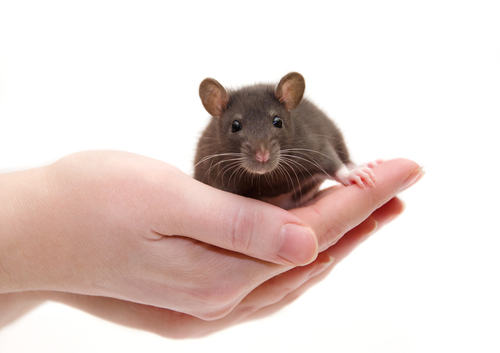Human Placental Extract Effectively Treats MS Symptoms in Mouse Study

Human placental extract eased clinical symptoms, inflammation, and weight and myelin loss in a mouse model of multiple sclerosis (MS), a study reported.
Its researchers proposed that placental extracts be investigated as a way of better managing MS symptoms in people.
The study, “Human placental extract attenuates neurological symptoms in the experimental autoimmune encephalomyelitis model of multiple sclerosis-a putative approach in MS disease?” was published in the journal Autoimmunity Highlights.
MS, an autoimmune disorder, is caused by the immune system attacks on the protective coating of nerve fibers known as the myelin sheath, disrupting electric signals.
Extracts of human placenta are used in various Asian countries to treat a variety of health conditions. The extract contains hundreds of compounds, including hormones, growth factors, immune signaling proteins, and amino acids (the building blocks of proteins).
Studies have suggested these extracts have a broad range of biological activities, such as modulating immune responses, promoting wound healing, and reducing inflammation.
A team led by researchers at the Iran University of Medical Sciences tested human placental extract in mice with induced MS symptoms (experimental autoimmune encephalomyelitis, or EAE mouse model), and investigated the effects of the extract on molecules associated with the autoimmune response in MS.
“We hypothesized that the immunomodulatory effects of human placental extract might be conducive to attenuating neurological symptoms in association with EAE model of MS,” the researchers wrote.
Mice were randomly assigned to one of three groups, each consisting of five to six animals. A healthy control group of mice was left untreated. In a second group, EAE was induced and no treatment given. EAE was also induced in the third animal group, and these mice were treated by injecting the extract into the body cavity four days after induction, then every other day until day 31.
The mice were weighed daily, and clinical symptoms were evaluated and scored based on tail activity, paralysis in one or more limbs, or death.
Clinical symptoms began on day 12, but the maximum mean clinical score of the extract-treated group was significantly lower than the untreated disease group, suggesting that treatment “with human placental extract can significantly attenuate the severity of EAE symptoms,” the scientists wrote.
An analysis of the animals’ spinal cords at the study’s end showed significantly lesser demyelination (loss of myelin) in those treated with the placental extract than was seen in EAE mice left untreated.
As expected, by the end of the treatment period (day 31), the mean body weight of the EAE mice was much lower than healthy mice. Still, mice treated with the placental extract showed lesser weight loss over time, and after 31 days there were no significant differences in body weight between EAE mice given the extract and healthy control mice.
No significant side effects were noted related to treatment with human placental extract throughout the study period.
Inflammatory cells and signs of inflammation were observed in the central nervous system (CNS, brain and spinal cord) of EAE induced mice compared to healthy mice. In treated EAE mice, however, fewer cells and lesser inflammation were evident in the CNS.
Levels of two immune signaling proteins — the cytokines interleukin-23 (IL-23) and interleukin-27 (IL-27) — were also measured in the animals’ blood. IL-23 is associated with inflammation, while IL-27 has anti-inflammatory properties.
In the healthy group, the mean blood concentration of IL-23 was 14.52 picograms (pg)/ml, and there was 20.3 pg/ml of IL-27. In untreated EAE mice, IL-23 levels were significantly increased to 26.15 pg/ml, while IL-27 was significantly reduced to 3.12 pg/ml.
Despite extract treatment not restoring IL-23 and IL-27 to normal levels, the concentration of IL-23 after treatment was found to be 20.63 pg/ml, while IL-27 rose to 30.18 pg/ml.
“These results further corroborate the anti-inflammatory role of human placental extract in EAE mice,” the researchers wrote.
“For the first time, the present study showed that human placental extract was able to significantly increase the concentration of IL-27 (a cytokine which high concentration in the serum of MS patient results in good prognosis), and decrease IL-23 (a pro-inflammatory cytokine associated with poor prognosis in MS patients),” the researchers concluded. “Thus, another protective effect of human placental extract against EAE may be attributed to the modulation of the balance between IL-23 and IL-27 serum concentrations.”
More evaluations are needed, the team added, but it believes that “human placental extract may be considered as a putative therapeutic agent for the management of clinical features observed in MS.”






